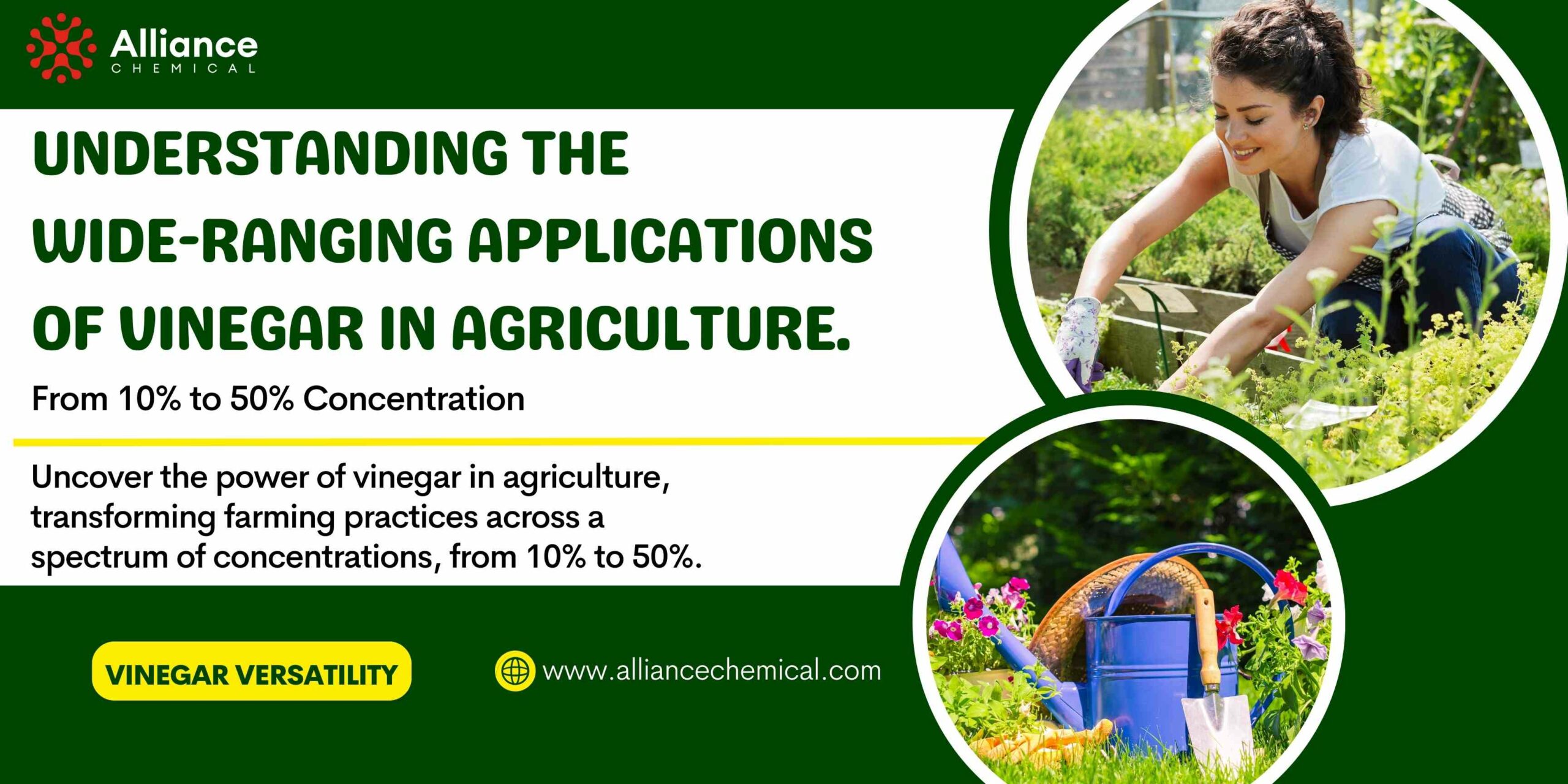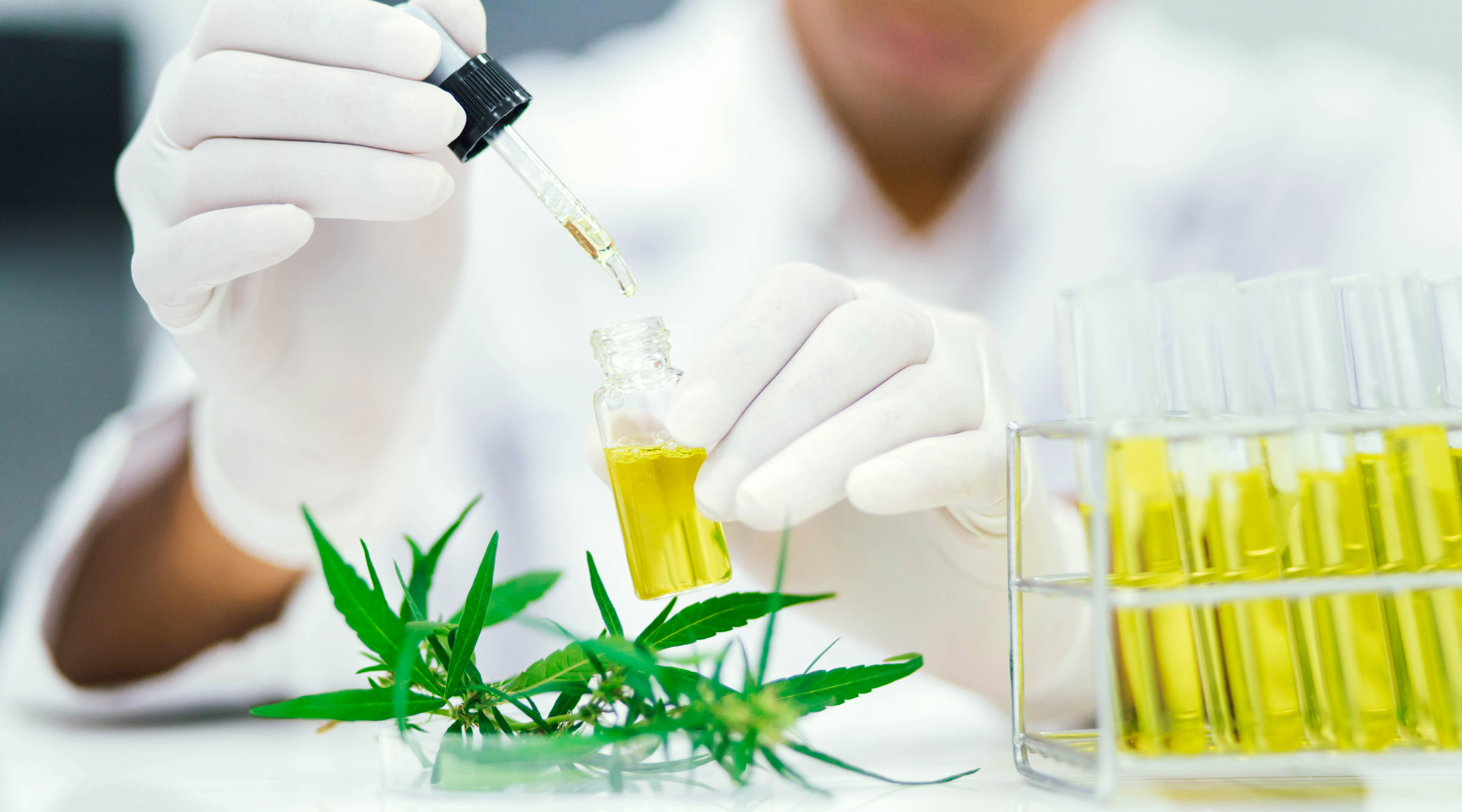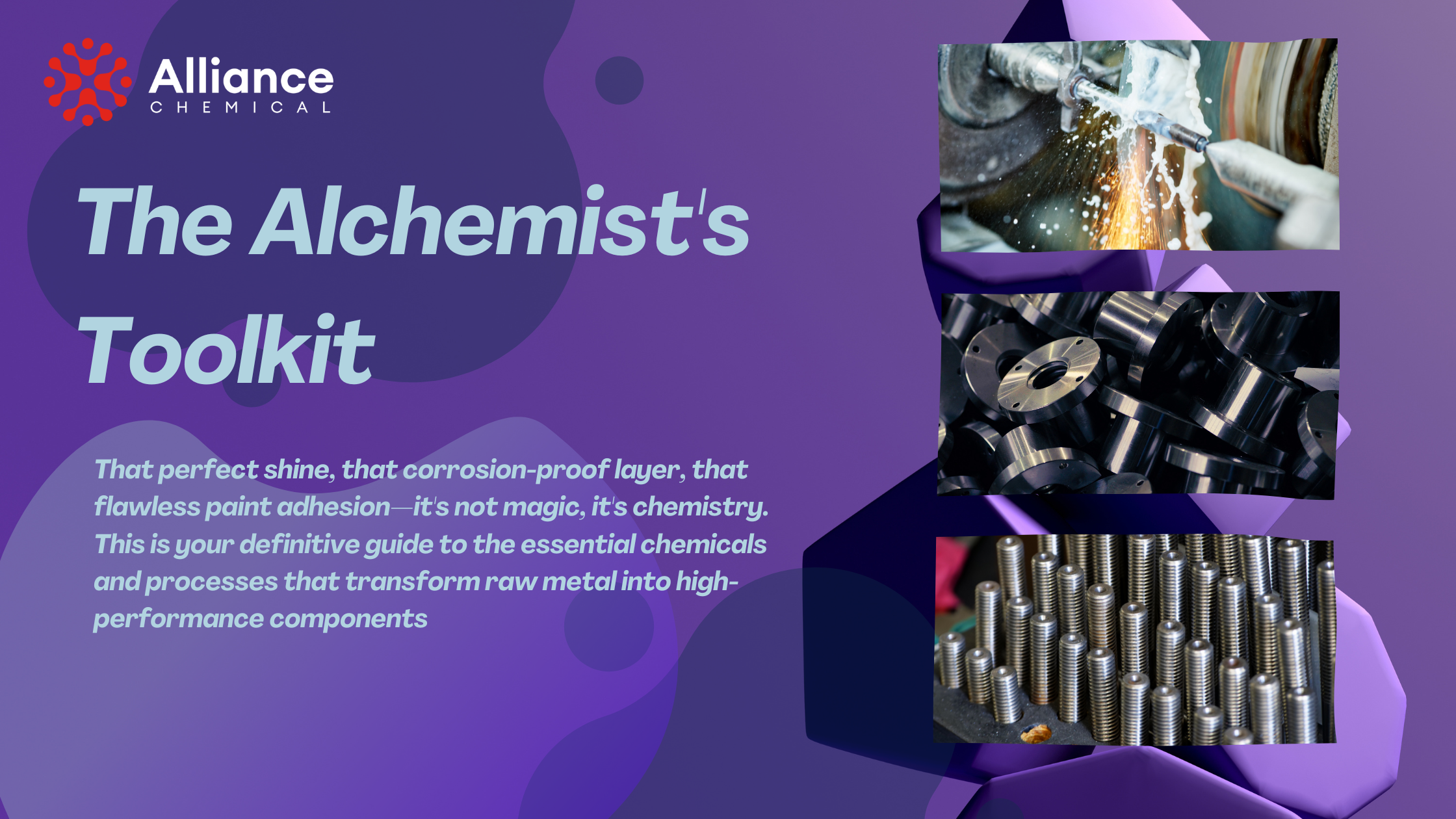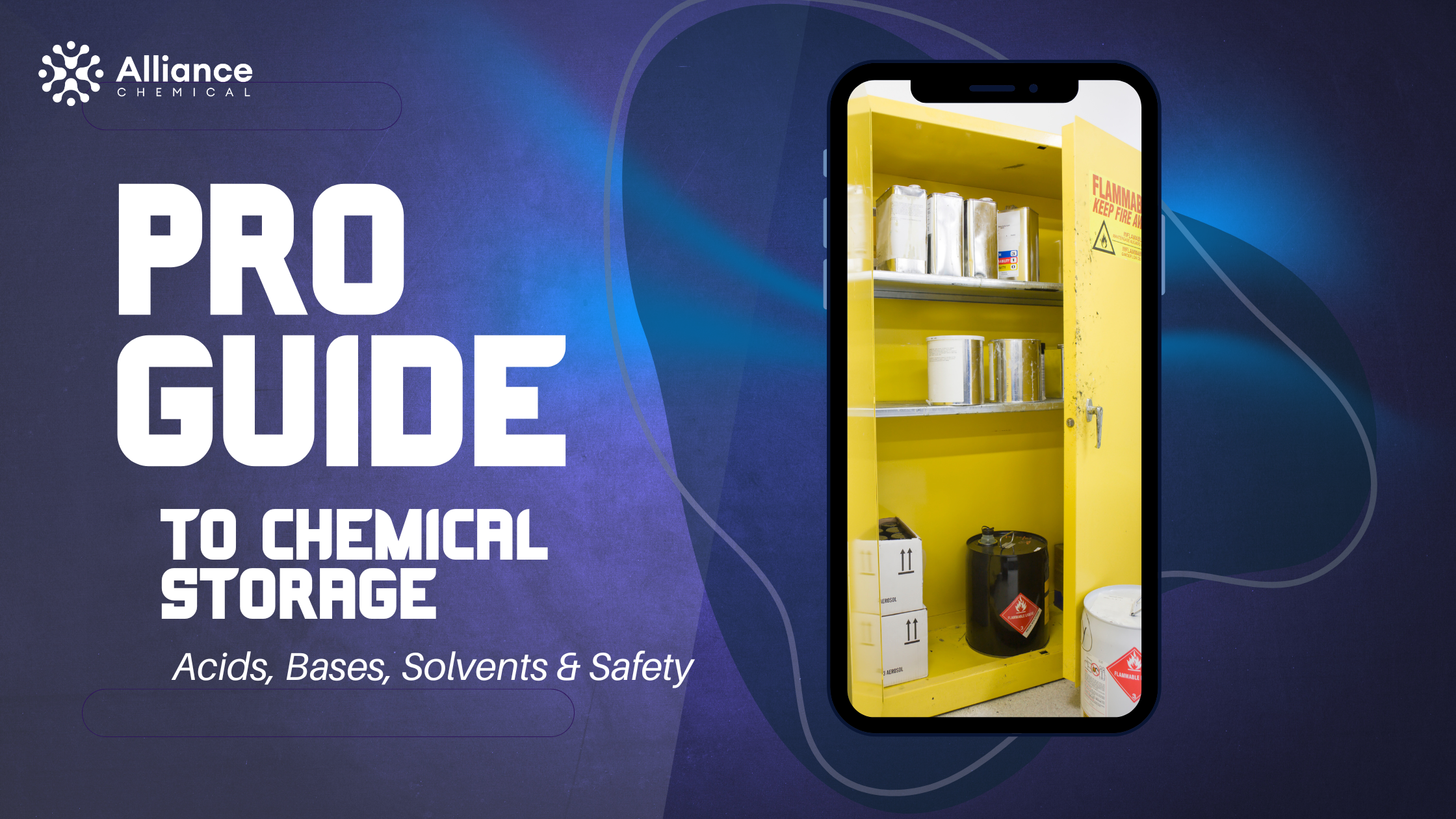
Understanding the Wide-ranging Applications of Vinegar in Agriculture: From 10% to 50% Concentration
Table of Contents
Summary
More than a household staple, high-strength vinegar is a powerful, versatile, and eco-friendly tool in the modern agricultural toolkit. This definitive guide covers everything from using it as a potent organic herbicide to balancing soil pH and sanitizing equipment, helping you harness its full potential on your farm or homestead.
The Chemistry of Power: What Makes Agricultural Vinegar Different?
To understand its effectiveness, we must first look at the chemistry. Vinegar, at its core, is a solution of acetic acid (CH₃COOH) in water. The key difference between standard household vinegar and its agricultural counterpart lies in the concentration of acetic acid. While culinary vinegar typically contains a mild 5% acetic acid, agricultural and industrial-strength vinegars boast much higher concentrations, ranging from 10% all the way up to a formidable 75%.
This concentration is everything. The increased percentage of acetic acid is directly proportional to its potency as an herbicide, a pH adjuster, and a cleaning agent. This is why understanding the different strengths is crucial for achieving desired results safely and effectively.
It's also important to note that most industrial-strength vinegars are produced synthetically to ensure consistent concentration and purity, which is vital for predictable performance in agricultural applications.
The Core Application: Potent, Natural Weed Control
The primary use for high-strength vinegar in agriculture is as a non-selective, post-emergent herbicide. It's a powerful tool for organic farming operations and for anyone looking to reduce their reliance on synthetic chemicals like glyphosate.
How It Works: The Science of Desiccation
Unlike systemic herbicides that are absorbed and translocated throughout the plant, acetic acid works as a contact desiccant. When sprayed on a plant, the acid rapidly breaks down cell membranes, causing moisture to leak out of the cells. This rapid dehydration leads to the browning and death of the plant tissue it touches, typically within 24 hours. Because it isn't absorbed by the roots, it has no residual activity in the soil, which is a major benefit for many applications.
Application Best Practices for Maximum Efficacy
- Target Young Weeds: Vinegar is most effective on young, annual weeds (less than 4-6 inches tall). It will "top-kill" more established perennial weeds, but they may regrow from the roots, requiring repeat applications.
- Spray on Sunny, Calm Days: Sunlight and heat accelerate the desiccating action of the acid. Avoid windy days to prevent drift onto desirable plants.
- Ensure Thorough Coverage: Since it's a contact herbicide, every part of the weed you want to kill must be thoroughly wetted with the spray solution.
- Consider a Surfactant: Adding a small amount of biodegradable soap or a commercial surfactant to your spray mix helps the vinegar stick to the waxy leaves of weeds, dramatically improving its effectiveness.
Buyer's Guide: Choosing the Right Vinegar Concentration
With concentrations from 10% to 75% available, selecting the correct strength is essential for success. Using a product that is too weak will be ineffective, while using one that is too strong can be wasteful and increase safety risks.
| Product | Primary Use Cases | Best For... | User Profile |
|---|---|---|---|
| 10% Vinegar | General weeding, household cleaning, pH adjustment for small gardens. | Controlling very young weeds and seedlings in garden beds. | Home Gardeners, Small Homesteaders. |
| 30% Vinegar | Serious weed control, fence line clearing, equipment sanitizing. | The most common choice for broad-spectrum weed control on farms. | Small to Medium Farms, Organic Growers. |
| 50% Vinegar | Tough, stubborn weeds, fast-acting spot treatments, concrete cleaning. | Quickly burning down hardy weeds on patios, driveways, and non-crop areas. | Landscapers, Commercial Property Managers. |
| 75% Vinegar | Extreme industrial cleaning, rapid desiccation, dilution for custom concentrations. | The most potent option for professionals needing maximum strength. | Large-Scale Agricultural Operations, Industrial Users. |
Beyond Weeds: Other Powerful Farmstead Applications
Regulating Soil and Water pH
Many crops thrive in slightly acidic soil (pH 6.0-7.0). In regions with alkaline soil or hard water, essential nutrients like iron and phosphorus can become "locked up" and unavailable to plants, even if they are present in the soil. By carefully adding diluted vinegar to irrigation water, growers can lower the pH, unlocking these nutrients and improving plant health. It's critical to monitor pH levels frequently with a reliable tool like the pH Ree Fall to avoid over-acidifying the soil.
Cleaning, Descaling, and Sanitizing
The acidic nature of vinegar makes it an excellent cleaner and descaler for agricultural use:
- Irrigation Lines: It effectively dissolves mineral deposits (calcium, lime) that clog drip emitters and lines.
- Tools and Equipment: It cleans rust from metal tools and sanitizes cutting implements to prevent the spread of plant diseases.
- Greenhouses and Animal Troughs: It removes algae and sanitizes surfaces in greenhouses, coops, and water troughs for livestock.
Animal Husbandry and Livestock
In small amounts, vinegar (typically apple cider vinegar, but white vinegar also works) is sometimes added to the drinking water for poultry and other livestock. Proponents believe it can help acidify the digestive tract, potentially inhibiting the growth of harmful pathogens and supporting overall gut health.
Mandatory Safety for High-Strength Vinegar
Do not mistake industrial vinegar for the mild product in your kitchen. At concentrations above 10%, acetic acid is a hazardous substance that can cause serious chemical burns to skin and eyes and damage to the respiratory system if inhaled.
- Personal Protective Equipment (PPE) is Non-Negotiable: Always wear chemical-resistant gloves, splash-proof safety goggles, and a face shield. When spraying, a NIOSH-approved respirator with an acid gas cartridge is essential.
- Work in a Well-Ventilated Area: Ensure there is adequate airflow, especially when working indoors or in enclosed spaces like a greenhouse.
- Safe Transfer and Handling: For moving large volumes from drums, never rely on tipping and pouring. Use a dedicated, chemical-resistant pump like a Siphon Drum Pump to ensure safe, spill-free transfer.
An Integrated Approach: Complementary Farm Chemicals
While vinegar is a powerful tool, it works best as part of an integrated strategy. For example, while vinegar adjusts pH downwards, sometimes alkaline solutions are needed. In fertilizer programs, other essential nutrients must be supplied. In winter, equipment needs protection.
- For Fertilization: Use products like Phosphoric Acid and Potassium Hydroxide Flakes to supply essential phosphorus and potassium.
- For Heavy-Duty pH Adjustment: In large systems, Sulfuric Acid can also be used for pH reduction.
- For Equipment Protection: Ensure tractors and other machinery are protected from freezing temperatures with products like Ethylene Glycol antifreeze.









